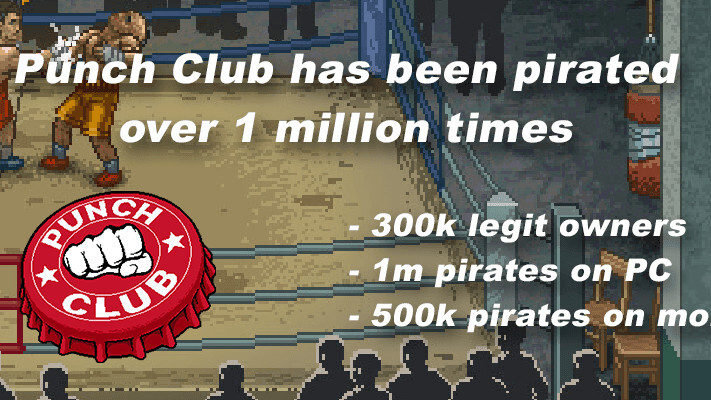
Punch Club, a game built by indie developers Tiny Build, was released in January but the company was surprised to see how many users pirated the game just two months in.
In a post released today the company detailed that while its game had been sold 300,000 times, it found that the game had been pirated more than 1.6 million times with the sheer majority coming from PC gamers.
The company used Unity Analytics as well as third-party tracking tools to discover when the game was legally used versus when it wasn’t and accounted for those that might have used it on multiple devices.
The game is also available on mobile, where it was pirated 514,000 times, with 90 percent of those pirated installs coming from Android users.

Diving into the statistics further uncovered that gamers in Brazil and China pirated the game most, particularly after specific localizations were released for those regions. Tiny Build noted that it didn’t see a sales jump to go along with those piracy numbers.
In terms of who did buy the game, Germany was overwhelmingly the most generous, with 46 percent of people choosing to buy instead of pirate, followed by the United States at 26 percent and France on 18 percent.

Punch Club didn’t contain any DRM features intentionally according to Tiny Build, because those are “horrible for the paying customer.” That made it easy to share the game, but didn’t necessarily make it fair on the developers.
The numbers are an interesting look into how hard it is for indie developers to make a living off games in a world where piracy is rampant. Despite games becoming easier than ever to buy, gamers still choose to avoid paying.
➤ Punch Club piracy [Tiny Build]
Get the TNW newsletter
Get the most important tech news in your inbox each week.





